
The Emperor in Han Dynasty, also released under the title The Emperor Han Wu in some countries, is a 2005 Chinese historical drama television series based on the life of Emperor Wu of the Han dynasty. It uses the historical texts Records of the Grand Historian and Book of Han as its source material.
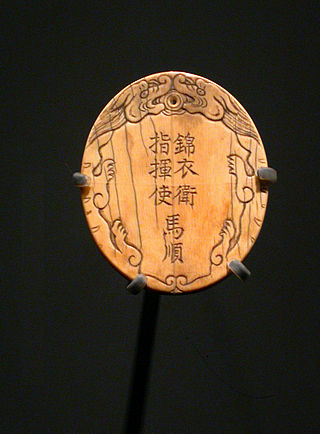
The Embroidered Uniform Guard was the imperial secret police that served the emperors of the Ming dynasty in China. The guard was founded by the Hongwu Emperor in 1368 to serve as his personal bodyguards. In 1369 it became an imperial military body. They were given the authority to overrule judicial proceedings in prosecutions with full autonomy in arresting, interrogating and punishing anyone, including nobles and the emperor's relatives.

Romance of the Three Kingdoms is a Chinese television series adapted from the classical 14th century novel of the same title by Luo Guanzhong. The series was produced by China Central Television (CCTV) and was first aired on the network in 1994. It spanned a total of 84 episodes, each approximately 45 minutes long. One of the most expensive television series produced at the time, the project was completed over four years and involved over 400,000 cast and crew members, including divisions of the People's Liberation Army from the Beijing, Nanjing and Chengdu military regions. Some of the dialogues spoken by characters were adapted directly from the novel. Extensive battle scenes, such as the battles of Guandu, Red Cliffs and Xiaoting, were also live-acted.

The Red Turban Rebellions were uprisings against the Yuan dynasty between 1351 and 1368, eventually leading to its collapse. Remnants of the Yuan imperial court retreated northwards and is thereafter known as the Northern Yuan in historiography.

The Prince of Han Dynasty is a three-season Chinese television series featuring a fictionalised life story of Liu Che, Emperor Wu of the Han Dynasty. Season 1 was first broadcast on Beijing Television in 2001 in mainland China, followed by the second and third seasons in 2003 and 2005 respectively. Except for Huang Xiaoming, who played Emperor Wu in all three seasons, the cast members in each season are almost different from its preceding one.

The Story of Han Dynasty is a Chinese television series based on the events in the Chu–Han Contention, an interregnum between the fall of the Qin dynasty and the founding of the Han dynasty in Chinese history. The series was first broadcast on CCTV in China in 2003. Directed by Wei Handao, the series starred Hu Jun, Xiao Rongsheng, Jacklyn Wu, Kristy Yang, Wang Gang and Li Li-chun.

The Water Margin is a 1998 Chinese television series adapted from Shi Nai'an's classical 14th-century novel of the same title. It was produced by CCTV with Zhang Jizhong as producer. It was first broadcast in China in January 1998. The series also featured action choreography by Yuen Woo-ping.

The Heaven Sword and Dragon Saber is a Chinese television series adapted from Louis Cha's novel of the same title. It is a final instalment of a television trilogy produced by Zhang Jizhong, preceded by The Legend of the Condor Heroes (2003) and The Return of the Condor Heroes (2006). Unlike the previous adaptations, this remake is the first to be primarily based on the third edition of the novel. The series was first broadcast on Wenzhou TV in China in October 2009.
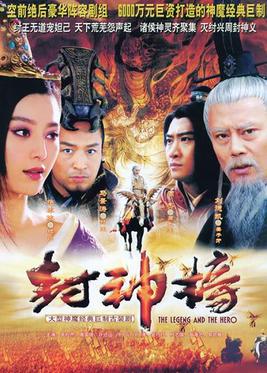
The Legend and the Hero is a 2007 Chinese television series adapted from the 16th-century novel Fengshen Yanyi written by Xu Zhonglin and Lu Xixing. The first season started airing on CCTV-8 in February 2007. It was followed by a sequel, The Legend and the Hero 2 in 2009.
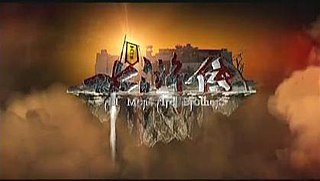
All Men Are Brothers is a 2011 Chinese television series adapted from Shi Nai'an's 14th century novel Water Margin, one of the Four Great Classical Novels of Chinese literature. The series is directed by Kuk Kwok-leung and features cast members from mainland China, Taiwan and Hong Kong. The series was first broadcast on 8TV in March 2011 in Malaysia.
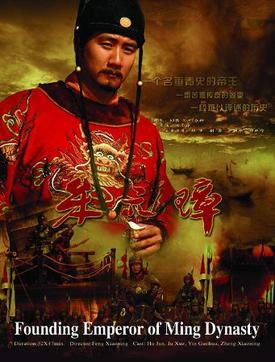
Founding Emperor of Ming Dynasty is a Chinese television series based on the life of Zhu Yuanzhang, the founding emperor of the Ming dynasty. Directed by Feng Xiaoning and starring Hu Jun as the emperor, the series was first aired on CCTV in China in 2006.

Empress Xiaocigao, commonly known as Empress Ma, was a Chinese empress consort of the Ming dynasty, married to the Hongwu Emperor and acting as his political adviser, exerting a large amount of influence during his reign.

The Rise of the Tang Empire is a Chinese television series based on the events in the Zhenguan era during the reign of Emperor Taizong of the Tang dynasty. The 50 episodes long series is directed by Zhang Jianya and written by Ah Cheng and Meng Xianshi. It was first broadcast on BTV in China in December 2006.

Wu Zetian is a Chinese television series based on the life of Wu Zetian, the only woman in Chinese history to assume the title of Empress Regnant and became the de facto ruler of China in the late seventh century. Directed by Chen Jialin, the series starred Liu Xiaoqing as the title character. It was first broadcast on CCTV in China in 1995 and subsequently aired by television stations in other countries.

Ming Dynasty in 1566 is a Chinese television series based on the events in the reign of the Jiajing Emperor of the Ming dynasty. It was first broadcast on Hunan TV in China in 2007.
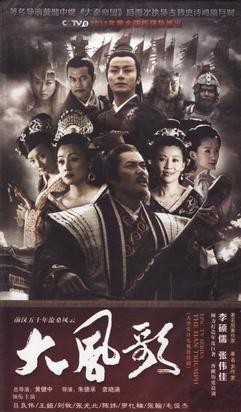
The Han Triumph, also known as Wind Ode, is a Chinese television series based on historical events in the early Han dynasty, beginning with the founding of the dynasty by Liu Bang after his triumph over Xiang Yu, and the events leading to the reign of Liu Heng. Directed by Huang Jianzhong, the series starred Ray Lui, Wang Ji, Liu Mu, Zhang Guangbei, Chen Wei and Li Qingxiang in the leading roles. It was first broadcast on CCTV-8 in China on 17 December 2011.

Tang Ming Huang is a Chinese television series based on historical events in the reign of Emperor Xuanzong of the Tang dynasty. The series was directed by Chen Jialin and starred Liu Wei as the eponymous emperor. It was first broadcast on CCTV-1 in 1990 in mainland China.
Records of Kangxi's Travel Incognito is a Chinese television series revolves around the Manchu-ruling Qing Empire monarch Kangxi Emperor and the corruption he faces as he tries to make the government run efficiently. The series was directed by Zhang Guoli and produced by Deng Jie. The series consists of a total of 144 episodes shot in high definition, each 45 minutes long. The series is based on the events in the Kangxi era of the reign of Kangxi Emperor during the Qing Dynasty. The series also features Kangxi Emperor's family member and entourage in prominent roles and storylines, most notably his Concubine Yi and eunuch Sandezi and Buddhist monk Fayin, and Concubine Yi's servant girl Xiao Taohong. The program originally aired from 1998 to 2007, spanning five seasons and 144 episodes. For the first four seasons, the show starred Zhang Guoli and Deng Jie as Kangxi Emperor and Concubine Yi respectively. In the last season, John Lone and Irene Wan became the stars.

How Much Sorrow Do You Have, also known as The Real Warrior in some countries, is a 2005 Chinese historical drama produced by Beijing HualuBaina Film & TV Co. It was first broadcast on China Television in Taiwan in August 2005. In mainland China it was first broadcast on CCTV-8 in 2006. The title is directly taken from a poem by Li Yu, the protagonist of the drama.


















